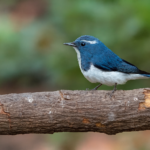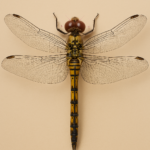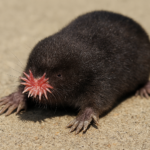
Red pandas are related to giant pandas. Although less well-known, the red panda was discovered 48 years before the giant panda. Nepal, India, Bhutan, China, Laos, and Myanmar are all home to this bear-like creature. Mountain forests are home to the red panda. Intense deforestation has resulted in a significant reduction in the number of wild red pandas. Aside from habitat loss, the number of red pandas is decreasing due to uncontrolled hunting for their fur. The red panda is an endangered species.
Red pandas can grow to be 20 to 26 inches long and weigh 7 to 14 pounds. Its tail can range in length from 12 to 20 inches.
Because of its size and red fur, the red panda is also known as the “Fire Fox.” The red panda’s upper side is red and white in color. The legs and belly are completely black. This coloration aids in camouflage in the forest.
Firefox’s trademark is the red panda.
Red and white rings cover the tail. The tail maintains balance while moving through the forest. In addition, red pandas wrap their tails around their bodies at night to prevent heat loss.
The red panda spends the majority of its time in the trees. The red panda moves slowly and deliberately on the ground.
Red pandas are omnivores (eats both plants and animals). It primarily feeds on bamboo, but it also eats fruit, roots, eggs, and small mammals.
Red pandas, like giant pandas, have an extra thumb that they use to grab bamboo sticks. The claws of the red panda are retractable (they can be hidden inside the paw).
Every day, a red panda consumes 200 000 bamboo leaves. Because the leaves have a low caloric value, the red panda rests for the majority of the day in order to conserve energy.
The red panda is a solitary creature that only congregates with other red pandas during mating season.
The red panda is a diurnal (daytime) animal that is most active in the morning and late afternoon.
The red panda communicates through body language and various types of sounds. A specific whistle is used to warn others of an impending danger.
The red panda’s main predators are leopards, clouded leopards, and wild dogs.
The red panda’s mating season occurs in the early winter. Female pregnancy lasts three months and results in one to four cubs.
Mother builds a nest out of twigs and grass and cares for the babies on her own. Babies are born blind, with closed ears and grey fur covering their bodies.
Young red pandas spend the first three months of their lives in the nest. They will remain in the care of their mother until the next breeding season.
Red pandas can live in the wild for 7 to 8 years and in captivity for up to 14 years.








